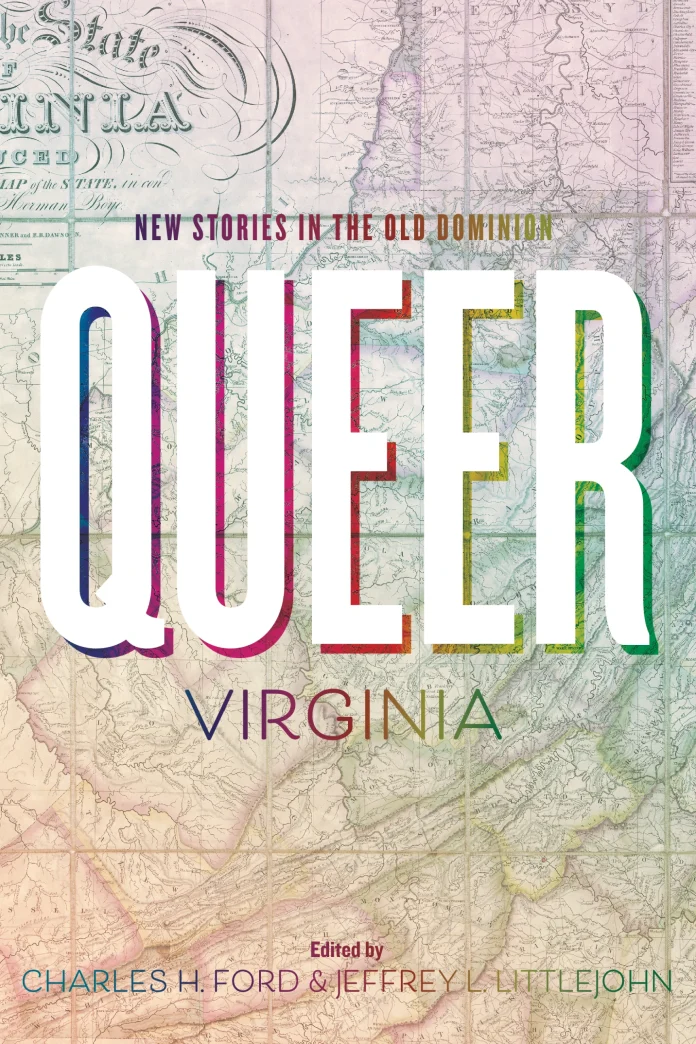While much of Virginia’s history is well-documented, Norfolk State professor Charles Ford discovered subject matter that was largely untapped.
“Queer Virginia: New Stories in the Old Dominion,” released last month, presents a record of LGBTQ+ people in the commonwealth and their struggles for acceptance. The book is a collection of essays curated by Ford and Jeffrey Littlejohn, professor of history at Sam Houston State University in Texas. Ford and Littlejohn wrote the opening essay that explores sodomy laws and same-sex marriage discrimination and crafted the final one on the obscenity debate in Hampton Roads.
The idea for the book originated after several meetings hosted by the Virginia Department of Historical Resources in Richmond, which brought scholars from around the state who have researched LGBTQ+ history.
“There wasn’t a statewide anthology ever, ever on this topic,” Ford said. “I knew Arkansas had one, and I thought, if Arkansas could have one, what about Virginia?”
University of Virginia Press agreed to publish the project, which started as an open call for submissions.
“We wanted a happy medium between popular history and academic history,” Ford said. “We wanted something very nitty gritty, very local, very detailed.”
The 216-page volume comprises seven essays in addition to the authors’ introduction.
The first essay chronicles how deeply entrenched the legal stigma was in Virginia toward the LGBTQ+ community. Laws preventing same-sex marriage and sodomy date back to the founding of Virginia as the first colony. One reference from 1629 mentions an indentured servant who had changed gender, with different jobs and sexual partners. When a Jamestown court ruled him a man and a woman, he was sentenced to wear male and female clothes to provoke public ridicule.
Harsh restrictions against sodomy remained in the 1800s, particularly for enslaved African Americans, who were put to death because they weren’t allowed to use the more lenient church courts.
By the 1970s, attorneys began to rely on what Ford calls “the politics of respectability” to further their arguments against oppression.
“The plaintiffs were above board, and they appealed to such things as the 14th Amendment and the Civil Rights Act,” Ford said. “By doing that, it normalized LGBT people rather than having them seen as criminal or deviant. The idea was to make people so normal, there was no way they could be attacked for some kind of impropriety.”
The essay covers the developments that led to Judge Arenda Wright Allen’s 2014 ruling that Virginia’s marriage laws violated the 14th Amendment’s Equal Protection Clause. When the U.S. Supreme Court refused to hear an appeal, same-sex marriage became legal in the commonwealth that fall.
Cathleen Rhodes, a master lecturer in Old Dominion University’s Department of Women and Gender Studies, contributed the book’s most poignant read. Her first-person account reflects on Hershee Bar in Norfolk, the first lesbian bar in the state, which operated for 35 years. Rhodes was among a small group of local activists who fought to keep the bar in the Five Points neighborhood from being torn down when city leaders wanted to redevelop the land.
Hershee, billed as “Where the Women Are,” opened in 1983. While bars like it struggled, Hershee reinvented itself multiple times, adding a women’s bookstore in a side room and a He Bar in a separate space.
It evolved into more than a safe space for queer woman. Rhodes details how Hershee served a larger community purpose, hosting weddings, memorial services, town halls and political candidates, as well as fundraising events for local AIDS organizations, recovery groups, and women’s sports teams.
In an effort to save the bar, Rhodes shares comments from a Norfolk City Council meeting. Said one woman, “You’re not just tearing down the building, you’re tearing down a piece of our history, and you’re tearing down a piece of our hearts.”
Norfolk razed the bar in 2019.
The final essay, “Queer Liberation and the Obscenity Debate in Hampton Roads,” includes references that many will recognize. Ford and Littlejohn report on the drama surrounding the seizure of a gay film shown at Naro Expanded Cinema and the battle to distribute the first issue of a LGBT newspaper in libraries.
Other essays recount a Black transgender woman from 1930 in Loudoun County, Charlottesville’s queer history and a community of African American transgender women who engaged in sex work in downtown Roanoke, clashing with that city’s effort to revitalize.
A meaty essay by William & Mary professor Jay Watkins shares from five oral histories about the struggles that “morphed, melded and divided” queer culture in Richmond.
Ford was initially hired at Norfolk State as a professor of British abolitionism. His past work includes hosting the Norfolk 17, a group of students who integrated six of Norfolk’s all-white public schools in 1959, on campus to commemorate the 50th anniversary of Brown v. the Board of Education.
“That opened my eyes to the richness of local histories, particularly in the 20th century,” he said. “Much of my work since then has been in African American civil rights.”
“Queer Virginia” is being released during a time when gay rights are eroding under President Donald Trump’s administration. The book offers guidance on the creative ways the gay community has shown its resilience over the centuries.
“Anytime you’re writing a hidden history, you have a brilliant audience,” Ford said. “People are interested because we’ve framed in this idea that you can’t understand these larger national issues without understanding that even before people called themselves LGBTQ, these issues were there.”



